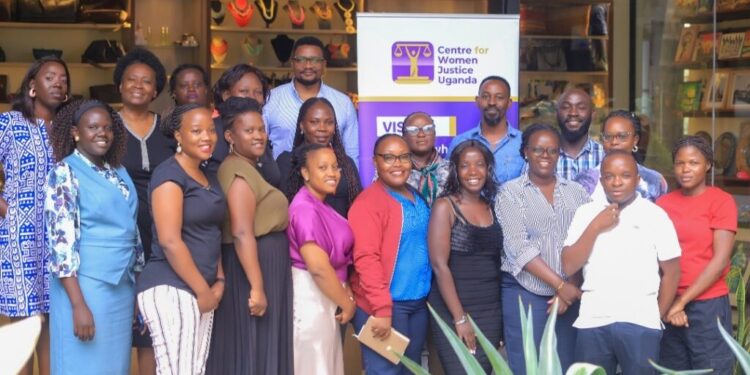The Center for Women’s Justice in Uganda has called upon various stakeholders to keep their efforts alive despite the loss of donor funding.
Immaculate Owomugisha, the Executive Director of the Center for Women Justice in Uganda (CWJU), stated that the organization is currently facing a crisis, as the fear of reduced funding weighs heavily on many associated groups.
“Uganda is amidst a crisis, but it is important to recognize that sister organizations across Africa face similar challenges. Therefore, we must prioritize human rights and gender issues and seek sustainable solutions,” Owomugisha emphasized during an event at Fairway Hotel in Kampala.
“During this crisis, we need to focus on human rights and gender issues, ensuring that the voices of marginalized communities are not overlooked despite the difficulties arising from reduced support from Western donors,” she added.
Owomugisha highlighted the importance of documentation and advocacy, stating that documenting human rights violations during these challenging times is crucial. This documentation can be used for advocacy, allowing us to leverage our collective voices and experiences to drive change.
Meanwhile, Angel Kyakunzire noted that many organizations outside government funding are shutting down. She stressed that this is the time to unite, find a common voice, and explore ways to continue working as volunteers to maintain momentum.
“Many of our people have been providing essential services. We must be reassured that there are ways forward, as there is hope for everyone,” Kyakunzire said.
The Center for Women Justice in Uganda offers various community services, including combating domestic violence, addressing gender-based violence, and providing guidance on HIV/AIDS.
According to statistics, Uganda’s HIV prevalence stands at 5.1%. The country currently faces 730 new HIV cases each week, with the majority being young people and girls. Approximately 860,000 women are living with HIV in Uganda, accounting for about 61% of the total 1.4 million people infected with the virus in the country.
Furthermore, there are approximately 20,000 individuals living with HIV who are undocumented and not receiving treatment, posing a significant risk to themselves and their communities.
Chipo Brenda.





















